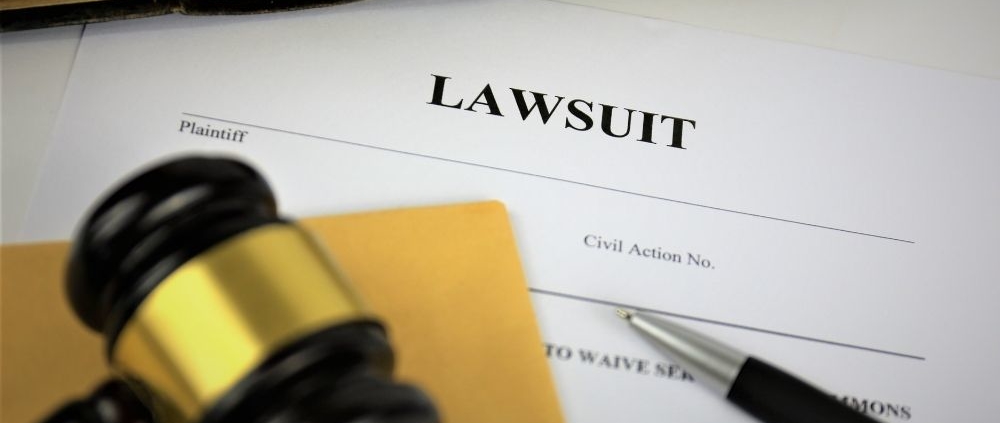Whether charges have been filed against you or you have been wronged by another party, it can be confusing to understand the difference between a civil and a criminal case.
Without knowing the difference, you may not know how the process works, what the consequences are, and which court should take on your case. Let’s look at the difference between a civil and a criminal case so you can better understand what to expect in your situation.
What’s a Civil Case?
A civil case is a legal dispute between two or more private parties. The lawsuit involves one or more persons or corporations that seek to hold one or more persons or corporations accountable for their actions. The plaintiff files suit against a defendant in an attempt to seek financial compensation.
Common examples of civil cases include:
- Personal injury
- Medical malpractice
- Wrongful death
- Product liability
- Negligence
- Fraud
- Breach of contract
- Eviction
- Defamation
Another type of civil case is an equitable claim wherein one party wants to stop something from happening and seeks an injunction or restraining order.
What’s a Criminal Case?
A criminal case is litigation between the government and one or more persons. The government is the plaintiff who files suit against the defendant or defendants. The lawsuit seeks to impose punishment that may include fines and jail time.
Common examples of criminal cases relate to the following crimes.
- Personal Crimes: Crimes that result in harm to a person such as homicide, assault, and battery, arson, rape, abuse, and kidnapping.
- Property Crimes: Crimes that interfere with property such as burglary, larceny, auto theft, robbery, and shoplifting.
- Statutory Crimes: Crimes that are prohibited by specific statutes and laws such as drug and alcohol crimes, driving under the influence, open containers, and public intoxication.
- Financial (White Collar) Crimes: Crimes that seek financial gain through fraud or deception such as blackmail, embezzlement, tax evasion, and money laundering.
- Inchoate Crimes: The intent to commit a crime or assist someone else with a crime such as aiding and abetting and conspiracy.
Criminal cases are classified as misdemeanors and felonies. Felonies represent the most severe cases. Crimes may also be classified as criminal infractions and ordinance violations, which are the lowest level crimes punishable by fines.
Related: Misdemeanor vs. Felony: What’s the Difference?
What’s the Difference Between a Civil and Criminal Case?
There are three primary differences between a civil and a criminal case.
#1) Who the plaintiff is
In a civil case, the plaintiff may be a person or a corporation.
In a criminal case, the plaintiff is the government. The government acts on behalf of the people of the United States. The case is prosecuted by the United States Attorney’s Office (when it is a federal crime) or the State Attorney (when it is a state crime).
#2) The type of punishment
In a civil case, the punishment is tied to financial compensation. The plaintiff may receive damages in the form of financial compensation from the defendant.
In a criminal case, the punishment is tied to jail time, probation, and fines. The defendant may be sentenced to time in prison or fines paid to the government.
#3) The standard of proof
In a civil case, the standard of proof is not as high as in a criminal case. Proving wrongdoing in a civil case is based on a preponderance of the evidence.
In a criminal case, the standard of proof is very high. The defendant must be convicted beyond a reasonable doubt.
Related: The Best Criminal Defense Attorneys Have These 7 Qualities
Can There Be a Civil and Criminal Case for the Same Crime?
Yes, a crime can be litigated in both civil and criminal courts.
In some situations, a crime may occur that fits into both courts. In that event, two separate cases — that do not involve each other — may be filed and tried.
One of the most famous examples of this situation is the O.J. Simpson case. Simpson was charged and found not guilty in criminal court for the murder of Nicole Brown Simpson and Ronald Goldman. The families of the victims filed a civil case against Simpson, which they won.
What Type of Case Do You Have?
Whether you are looking to pursue legal action against another party or you are being named as a defendant in a case against you, it can be a confusing process. Knowing the difference between a civil and criminal case is the first step in determining your legal strategy.
If you need help determining what type of case you’re involved in and what that means for you and your legal strategy, talk to an experienced attorney. An attorney can guide you through the process and advise you on the best way to approach your case.
Get answers today. Schedule a free consultation with TJ Grimaldi to find out how you should approach your criminal or civil case. Schedule your consultation or call 813-226-1023 now.




Leave a Reply
Want to join the discussion?Feel free to contribute!